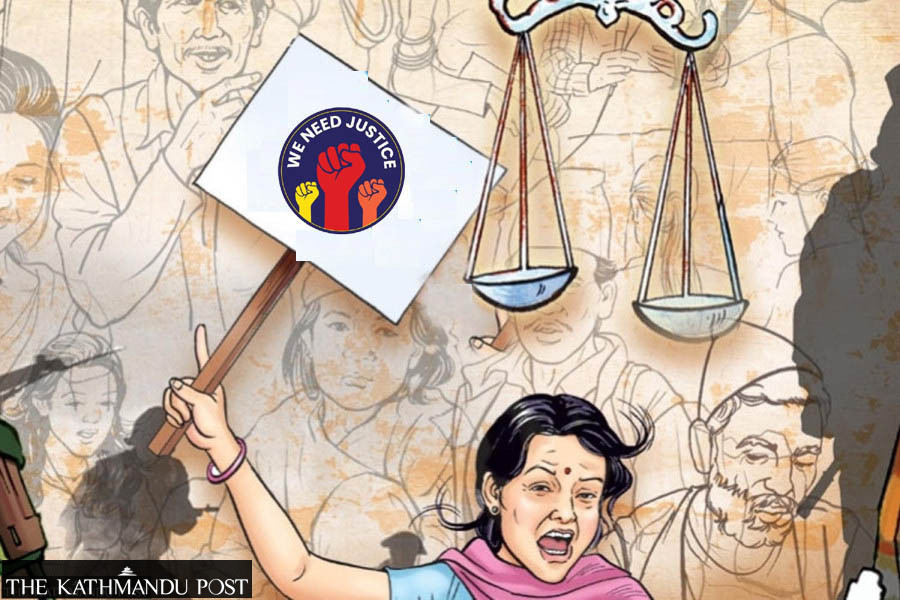National
Transitional justice office bearer candidates’ shortlist to be published by tomorrow
Panel received 156 applications from retired judges, officials, legal experts, and rights defenders but only 128 names are on the list.
Post Report
After a week-long struggle, the committee formed to nominate office bearers for the two transitional justice commissions is preparing to publish the shortlist of probable candidates by Monday, including the names of those who had not applied.
The committee led by former chief justice Om Prakash Mishra received a total of 156 applications from retired judges, government officials, legal experts, and rights defenders, including the victims of the decade-long Maoist insurgency. However, it included 128 names only, claiming that the remaining 28 individuals were recommended by different organisations without their consent.
Former chief justice Kalyan Shrestha, former law ministers Agni Kharel and Govinda Sharma Bandi and former lawmaker and senior advocate Radheshyam Adhikari are among those recommended without their formal consent. They have been considered probable faces of the chairpersons of the Truth and Reconciliation Commission and the Commission of Investigation on Enforced Disappeared Persons.
The nomination committee will be publishing the shortlist of the candidates, incorporating the few names it has collected.
“Selecting the most suitable persons among the dozens of competent candidates is time consuming. Also, receiving consent from those whose names were filed without their formal consents too takes time,” Khamma Khati, spokesperson for the Mishra-led committee, told the Post, explaining the reasons for the delay in publicising the shortlist. “The shortlist will be published either Sunday or Monday.”
The selection committee had set three modalities for application. While individual aspirants can directly apply for any of the positions, different human rights and victims’ organisations can also make nominations at the organisational level. Such institutions, however, need the consent of the individuals they are nominating.
As per the sources privy to the developments, the selection committee members have already met the top political leadership to brief on the possible names they will be putting on the shortlist.
“We want to ensure that the best of the best get selected as office bearers. Selecting the right person takes time,” Stella Tamang, a member of the committee, told the Post.
The committee constituted on October 18 has little over two weeks before its two-month deadline to recommend the names. The government appoints 10 individuals—with five-member teams led by a chairperson in each commission. The committee has agreed not to repeat the former office bearers though many of them have applied to get repeated.
Similarly, it is unlikely that it will recommend former supreme court justices and office bearers of the National Human Rights Commissions as the Constitution of Nepal envisions that they would not be appointed for the long term responsibilities. There has also been a broader agreement not to recommend the individuals who could have conflict of interest.
As per its working procedure, the committee will collect public feedback, ask the candidates to make presentations of their visions and carry out other necessary tasks before selecting them for appointment.
The stakeholders, however, claim that presentations and public feedback are insufficient. The victims of the 1996-2006 conflict and human rights activists have demanded mandatory public hearings of shortlisted candidates before making the nominations.
The two commissions have remained defunct since July 2022, when the government extended their terms without retaining their chairpersons and members. The government claimed the bill to amend the transitional justice law would be endorsed by October 2022, and the appointments would be made based on the revised Act.
However, the federal parliament took more than two years to endorse the bill. The victims and human rights defenders are now closely watching who will be appointed to the commissions.
The amended law sets four-year terms for the two transitional justice commissions to investigate the cases and recommend prosecution and reparation. However, if they fail to accomplish their tasks within the given time, they may be granted a term extension.
The truth commission has received 63,718 complaints, while the commission on disappearances is sitting on around 2,400 cases. As the recent amendment to the Act has included a provision to allocate additional three months to collect the applications, the number will further increase.
The commissions, first formed in 2015, have done little beyond collecting complaints and conducting preliminary investigations on some cases. The to-be-formed commissions will be the third to be constituted in a decade.




 18.12°C Kathmandu
18.12°C Kathmandu













